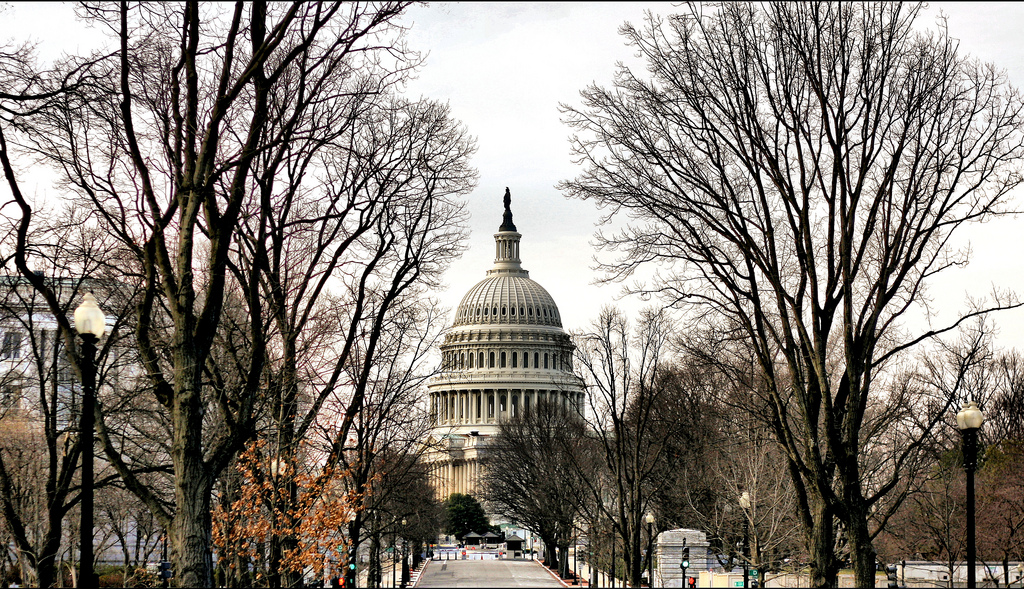Legislative activity is slowing down as the the Easter recess draws nearer. After passing the $1.3 trillion omnibus spending package last week, many incumbents will spend a majority of their times campaigning ahead of the midterm elections. Though, Republican leaders have not indicated what is next to come from Congress as nomination hearings and infrastructure legislation sit in limbo.
The omnibus package included hundreds of millions of dollars for unspecified infrastructure projects. Presumably, next on the docket then will be infrastructure, but there are fractures within the party on what should be included, how much it should cost, and how it will be paid for.
In a report from The Hill, Senate Energy Committee Chairwoman Lisa Murkowski (R-Alaska) wants the bill to include energy infrastructure development, Senate Commerce Committee Chairman John Thune (R-SD) wants it to include rural-area broadband development, and Senator James Inhofe (R-OK) wants the package to focus on traditional infrastructure projects such as roads and bridges.
Republicans agree that the infrastructure spending should be paid for by a conglomeration of taxpayer funds, private financing, and public-private partnerships, but there is no consensus on what amount of taxpayer funds should be contributed.
During his 2016 presidential campaign, Donald Trump announced that he would seek a $1 trillion infrastructure bill that would rebuild America’s, “crumbling roads and bridges,” among other domestic improvements. Opposed to such a monumental measure, Chairman of the House Freedom Caucus Mark Meadows (NC-8) said weeks ago at a West Virginia GOP retreat that federal funding should not exceed more than $200 million.
If the infrastructure plan stalls from blocks in the House or Senate, the Republican leadership is looking to move forward with more specific, less controversial legislation.
Senator Rob Portman (R-OH) has sponsored the Reauthorization of the Federal Aviation Administration (FAA) which would fund the department through 2021. The bill would also revise requirements for the airport improvement program and pilot program for passenger facility charges at non-hub airports.
Furthermore, Portman has put his support behind crafting a bill to address the opioid epidemic. Dubbed CARA 2.0, in conjunction with the 2016 Comprehensive Addiction and Recovery Act, the measure would institute a national education campaign, provide more first responder training, aid the building of communities of recovery, create more sufficient prescription drug monitoring programs (PDMP), and other initiatives.
The largest priority for lawmakers after the holiday break will undoubtedly be the confirmation of Trump’s new pick for Secretary of State, former CIA Director Mike Pompeo and the president’s new spy head, Gina Haspel. Considering Pompeo received a 66 vote super-majority, he will most likely have a smooth, non-controversial departmental confirmation.
However, Haspel will likely bare the brunt of harsh questioning surrounding her involvement in CIA black sites and international clandestine operations. Last week, Senator John McCain (R-AZ) asked Haspel about her role in the Rendition, Detention and Interrogation program she oversaw as the Director of the National Clandestine Service under former Obama-era Director John Brennan. As well, Libertarian-minded Senator Rand Paul (R-KY), highly critical interrogation methods accused her of assisting officials developing techniques that the federal government now classifies as torture and of destroying video evidence.
Beyond the two high-profile nominations, the Senate has a backlog of 131 nominees that will fill vacancies in the Trump Administration. Senate Majority Leader Mitch McConnell (R-KY) set up six nominations before the upper chamber left for Easter recess. As President Trump has been signaling the firing of more of his Executive Cabinet members, the Senate could be further stifled by more nomination debates.
Nevertheless, as the fall midterm elections grow closer, the Republican leadership will look to help bolster the legislative record for vulnerable incumbents that will go on the offensive to defend their seats.







